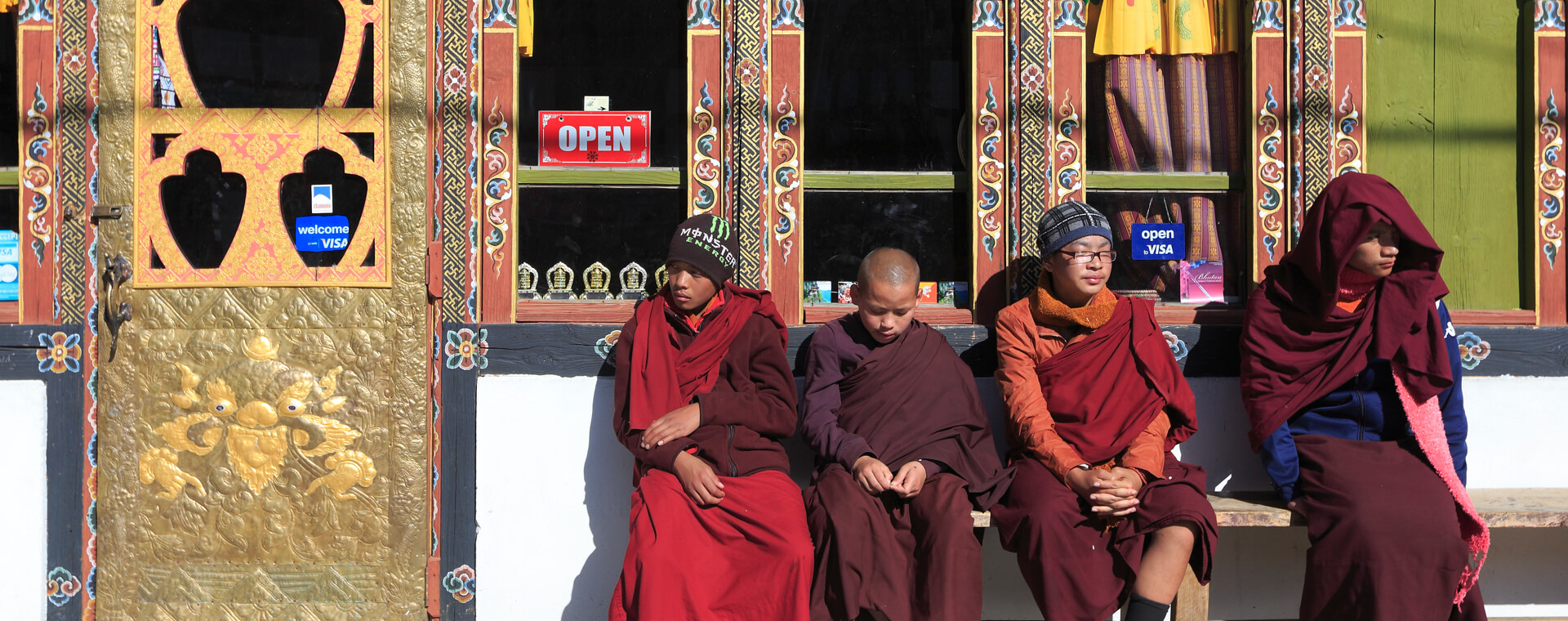Bhutan Calture and Lifestyle
Bhutanese people really take pride of their rich tradition and culture. The culture is unique and they still preserved in the wake of development. Even in 21st century world, the rich culture and traditions have really blended well with modernization and development. Preserving the age old culture has also been recognized as one of main pillars in fulfilling the development philosophy of Gross National Happiness. The tradition is not only reflected in the attires known as Gho and Kira, but in ceremonies such as marriage, Divorce, birth of a child and in promotions, but even in conducting death, construction of houses and journeying to new places or on travels.
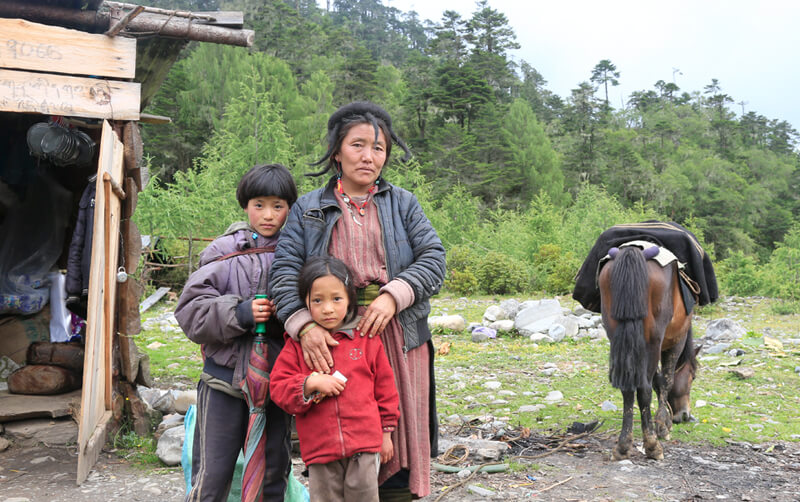
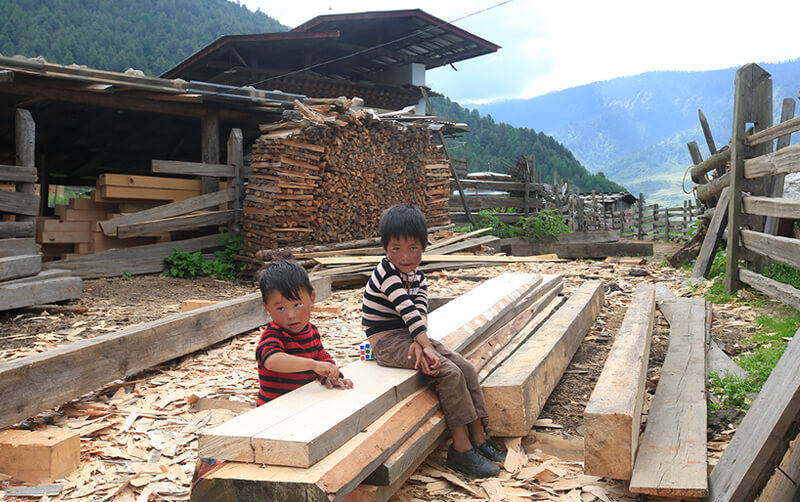
Marriagesare
Marriagesare always low key simple affairs for many Bhutanese. However, keeping with the tradition, local Lams or saints are invited to conduct rituals for lifelong union, good health and prosperity. The wedding is always followed by a good feast where jars of local wine are emptied. In the evenings, Bhutanese dances are performed and there is music and merry making.
Divorceis
Divorceis not a social stigma and divorces are rapidly becoming common in Bhutan. For people living in the cities and towns, with changing life style and work patterns, many married couples do not find time for each other and end up filing for a divorce or through a consensus. The divorced either man or woman, can re marry and continue with their life.
Birthis
Birthis welcome news or the family members. There is no preference over the sons from the daughters. All are treated equally. Keeping with the tradition, family members, friends and relatives normally pay a visit after the third day of the birth. Till then, the house is believed to be defiled. On the morning of the third day, the local saint conducts a short ritual after which guests are entertained.
Funeral
Funeral for the departed is conducted as per the tradition. For most Bhutanese, who adhere to Buddhism, the dead is always cremated. Every community would have a cemetery for the purpose. The local Lams conduct the funeral rituals and the remains are thrown into the river. A small amount of the remain is also mixed with earth and small stupas made in honor of the deceased. These stupas are placed in caves and are supposed to bring merit for the dead. Rituals are also conducted till the 21st day after death and then finally on the 49th day. Death anniversaries are also observed.
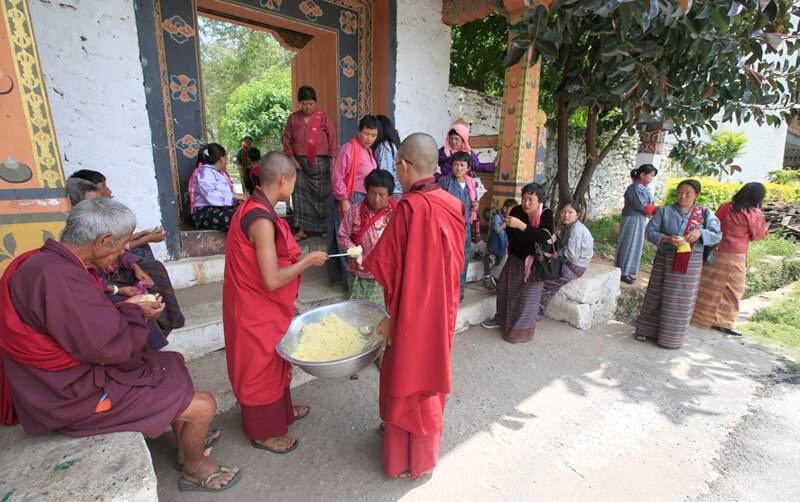
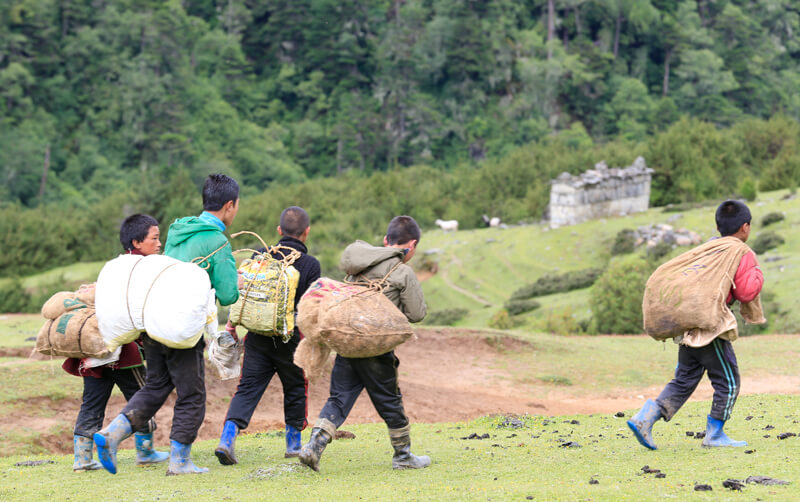
Bhutan remains a unique and untouched and special country in the world. For better or worse, the country has opened its doors and hearts to the outside world and joined the global community. Three is now at least one mobile phone for every three Bhutanese. There are 45000 registered vehicles though there are still no traffic lights.
Despite the rapid and recent uptake of technology, democracy and global trends, Bhutan is very aware of the dangers of modernisation. Bhutan is the country where yesterday, today and tomorrow are strangely mingled together.
Bhutan was the first country in the World to ban Smoking in public and sale tobacco. Bhutan also banned western style advertising billboards and plastic bags.
Bhutan Believes in Gross National Happiness
Which is why Bhutan measures the countrys growth in terms of Gross National Happiness (GNH) as opposed to the Gross Domestic Product (GDP) as followed by the rest of the world.
The Bhutanese people have always taken a unique approach to everything. Bhutan has inspired many around the world by placing the happiness and prosperity of each of its individuals ahead of economic wealth. This is the central idea behind Gross National Happiness (GNH), Bhutans development philosophy.
Since spiritualism reigns supreme in Bhutan, the way of life of the Bhutanese people is basically governed by their religious beliefs. Bhutanese people revolve around ones duty towards the propagation of their faith, consolidation of family values, contributions to various social initiatives & fulfilling their obligations towards the country.
Whilst visiting Dzongs, monasteries, temples and festivals ensure you dress neatly and modestly (covered arms, no shorts, three quarter length trousers, short skirts or tight or skimpy clothing). Do not wear a hat in the precincts of Dzongs or religious complexes.
Walk clockwise around Chortens (stupas) and Mani (prayer) walls and refrain from smoking on the premises. If you see a prayer flagpole on the ground waiting to be erected, do not step over it, as this is considered extremely disrespectful: walk around it instead. Never stray onto the dance ground at festivals in search of the perfect spot – this is the height of bad manners and will definitely give offence to all Bhutanese who see you.
The giving of alms to mendicants and holy men in the vicinity of markets and outside temples is an accepted practice. In exchange for your contribution of a small coin, a prayer will be intoned for you. Take your cue from the Bhutanese on such occasions and, when in doubt, ask your guide what would be the appropriate thing to do.


